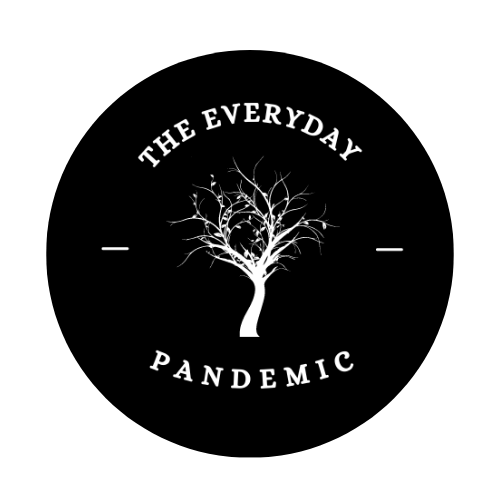We agreed to participate in the study,
took the surveys that asked how often
during the past week has your baby
laughed?
and checked the box that said
we’d send a sample of everyone’s hair,
so researchers could measure
cortisol, testosterone, prolactin.
So they could determine: during
this trial, did our hormones
sync or scatter, the way
evenings, we do, each swept
to our corners, searching
for our faces in the choked
night sky? Last week the old year
poured into the new one
like salt. Now, days sting
and brighten slowly.
The sample kit collects
dust on the dining table,
these days our delta
of pleasures and debts:
bank statement, watercolors,
two pocket knives with their hand-
tooled sheaths. Seven months on,
my hair, thin gold wire, still
pulls away in fistfuls.
I’ve given my daughter
its cautious shine, its flat
barn tones. In her father’s curls,
their opulent difference,
she pampers her tiny hands.
During his isolation, I bent
and tried to trim her right
ring finger’s nail, watched
the clipper’s jaws sink,
too satisfied, into a layer
of new skin cells. It took us both
a beat to see the bleeding,
as if the tide of error
had to rise to meet us,
though if I squinted
I could see its yellow foam
from some ways off. On the rug
I gave her my breast because
to offer my body was all
the medicine I knew. For days,
her hand hid in a sock
like a face obscured
in some autocrat’s official photo,
its absence making it glow
with importance. After that, how
could we trust our hands again,
which quavered? Or
our eyes, which saw only
to the end of the street,
around whose corner a man
was surely turning, carrying
what we dreaded? We placed
our only faith in the uncut
scroll of her cells: dividing,
arguing. Their impossible questions
fringing her face, girding her bones,
ringing in every room.
She says this tkhine on her child’s first birthday, the world unfolding
20. Is it a common belief that the appearance and resemblance of children depends on what the mother sees during the time she is leaving the mikve and during her pregnancy?
She says this tkhine when she has stopped counting the days
Theorem

Leah Falk is the author of To Look After and Use (Finishing Line Press, 2019). Her work has appeared in The Kenyon Review, FIELD, Electric Literature, Best New Poets, and elsewhere. Born and raised in Pittsburgh, she lives in Philadelphia and directs programming at the Writers House at Rutgers University-Camden.
About the Series: These poems are a part of our ongoing series exploring isolation, exile, and “The Everyday Pandemic.” With the arrival of COVID-19 new realities emerged. Isolation became ubiquitous. Everyday movement suddenly came with great risk. The spaces that once brought order and safety became malleable and uncertain. Throughout this series it is our hope to create an alternative conversation to the dominant COVID-19 discourse: one that captures the daily toll of life through the pandemic from the perspective of writers and artists who are familiar with the experience of isolation and exile. With this in mind, we’ve collected stories, poems, nonfiction essays, and digital art from writers and artists from all walks of life and from all around the globe.


